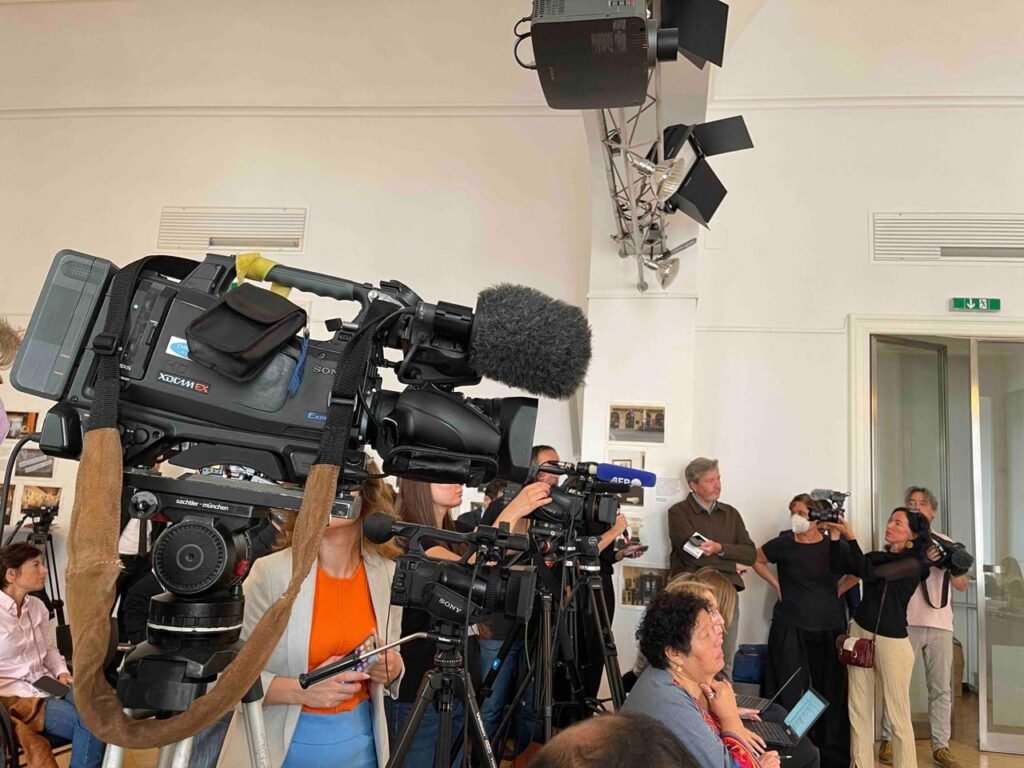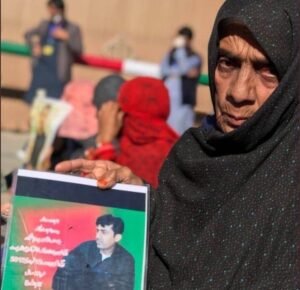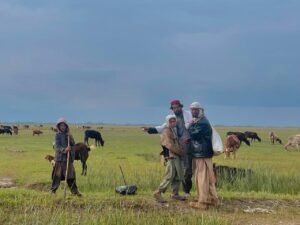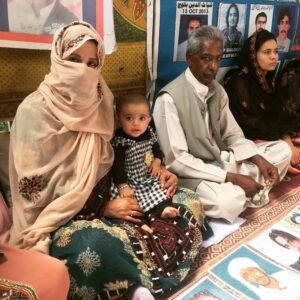Press Freedom in Pakistan Under Siege: A Grim Outlook for Journalists

Photo: @Ali Ahmad
By Fatima Chaudhary
On June 19, reporters in Pakistan’s northwestern Khyber Pakhtunkhwa Province took to the streets in protest, following the assassination of journalist Khalil Afridi. Afridi, who worked for Pashto-language Khyber TV and served twice as president of the local press club in Landi Kotal, was shot by unidentified armed men. His death has sparked renewed concerns about the safety and security of journalists in Pakistan, a country consistently ranked among the most dangerous for media professionals.
The protest, which occurred after Afridi’s funeral, saw over 1,000 people, including members of the local community, gather to pay their respects and demand justice. Shams Mohmand, head of the Khyber Pakhtunkhwa Journalists Association, announced another demonstration planned for June 21 at Bab-e-Khyber to press for better protections for journalists.
Afridi was killed on June 18 around 10 p.m. local time when his car was ambushed by hooded gunmen. Police reported that Afridi and a friend, who was also injured in the attack, were returning home from a flood site. No group has claimed responsibility for the killing, but Afridi’s family revealed he had been under threat for a long time, surviving a previous assassination attempt in 2017 when a bomb planted under his car failed to detonate.
The tragic death of Afridi underscores the perilous environment in which Pakistani journalists operate. The Freedom Network, a nongovernmental organization advocating for media freedom in Pakistan, reported a surge in threats to journalists in its annual report released on World Press Freedom Day, May 3. The report highlighted that four journalists were killed between May 2023 and April 2024, with 104 incidents of violence against media workers recorded during that period.
Recent months have seen an alarming escalation in violence against journalists across Pakistan. In May alone, four journalists were killed in targeted attacks. Muhammad Siddique Mengal, president of the Khuzdar Press Club, died in a bomb attack on May 3. On May 15, Ashfaq Ahmed Sial was shot dead in Punjab province. Kamran Dawar was murdered on May 21 in North Waziristan after receiving death threats for criticizing the military, and Nasrullah Gadani was killed by motorcyclists in Sindh province.
These attacks reflect a broader climate of impunity and repression. According to the Committee to Protect Journalists (CPJ), Pakistan ranks 11th on the 2023 Global Impunity Index, highlighting the country’s failure to prosecute those responsible for killing journalists. Despite the passage of the “Protection of Journalists and Media Professionals Act” in 2021, high-profile cases of impunity persist, with no convictions in 96% of journalist killings between 2012 and 2022.
Journalists in Pakistan also face increasing censorship and legislative constraints. The Punjab Defamation Bill, 2024, passed without stakeholder consultation, and proposed amendments to the Prevention of Electronic Crimes Act (PECA), 2016, aim to regulate digital spaces more tightly. The Pakistan Electronic Media Regulatory Authority (PEMRA) has issued directives that further restrict media coverage, including a recent ban on reporting ongoing court proceedings until written orders are issued.
The PEMRA directive has been challenged successfully in court, but concerns remain. Reports indicate that authorities are implementing a nationwide firewall across Internet Service Providers (ISPs), filtering out dissenting content and blocking access to platforms like X (formerly Twitter).
International organizations like the International Press Institute (IPI) have expressed deep alarm over the deteriorating press freedom in Pakistan. IPI has urged the Pakistani government to enhance protections for journalists and create a legal environment that supports freedom of the press and access to information, aligning with international human rights standards.
The arrest of prominent journalist and former TV anchor Imran Riaz Khan on fraud charges further exemplifies the precarious situation for media professionals. Known for his critical stance towards the military, Khan was arrested without a warrant, leading to a legal challenge by his team. His arrest, the third in 13 months, underscores the ongoing crackdown on dissenting voices.
As Pakistan grapples with these challenges, the international community continues to call for urgent action to protect journalists. “Journalists in Pakistan have the right to work freely and independently and without fear of physical or legal harassment,” said Amy Brouillette, Director of IPI. The safety and freedom of the press are crucial for democracy, and Pakistan’s government must respect and uphold these rights.
The Pakistani military’s lack of concern for protecting the media is exacerbating the threats faced by journalists. Instead of addressing the increasing violence against media professionals, the military has been implicated in numerous cases of intimidation and harassment. High-profile incidents, such as the abduction of journalists and punitive legal actions against those critical of the military establishment, reveal a troubling pattern of suppression. This climate of fear not only endangers individual journalists but also undermines the broader principle of press freedom, crucial for a functioning democracy.
The case of Khalil Afridi and other journalists underscores the urgent need for Pakistan to address the threats facing its media community. Without significant reforms and a commitment to protecting journalists, the country’s press freedom remains gravely imperiled.
Fatima Chaudhary is a lecturer at a private university in Punjab province.
Note: The contents of the article are of sole responsibility of the author. Afghan Diaspora Network will not be responsible for any inaccurate or incorrect statement in the articles.










